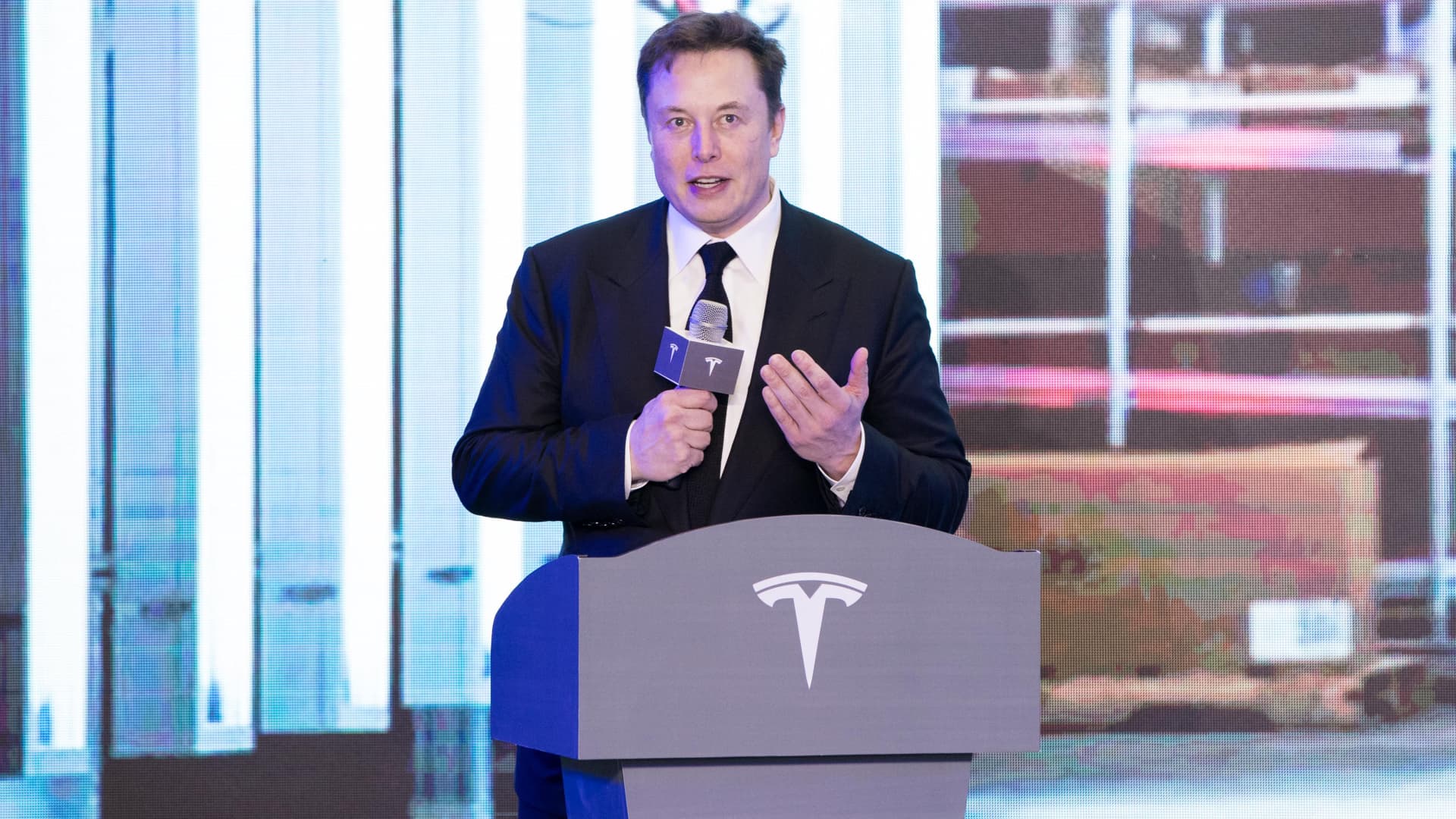
Tesla CEO Elon Musk speaks at a delivery ceremony for Tesla China-made Model 3 in Shanghai, east China, Jan. 7, 2020.
Ding Ting | Xinhua News Agency | Getty Images
Elon Musk said that a Chinese automaker is likely to be the closest competitor to Tesla, while stressing the company is “winning in China” right now.
Tesla has a number of challengers in China in the electric vehicle space, including a slew of start-ups such as Nio, Xpeng and Li Auto.
Tesla’s biggest rival in China right now is Warren Buffett-backed automaker BYD. Last year, BYD sold 911,140 battery electric vehicles globally and a total of 1.8 million vehicles, when factoring in plug-in hybrids. Tesla delivered 1.31 million cars in total in 2022.
Musk answered a question about the competitive landscape for electric cars on Tesla’s earnings call on Wednesday, saying the company is “fired up about the future and, well, it’s going to be great.”
“We have a lot of respect for the car companies in China. They are the most competitive in the world … they work the hardest and they work the smartest … so lots of respect for the China car companies that we’re competing against,” Musk said on the Tesla earnings call on Wednesday.
“And so, if I were to guess … probably some company out of China is the most likely to be second to Tesla,” Musk said.
Musk said that the “Tesla China team is winning” in the country without clarifying further.
Tesla’s Model 3 was the fifth best selling new energy vehicle car in China in 2022, according to the China Passenger Car Association. Cars made by BYD and SAIC-GM-Wuling sold more in 2022 than did Tesla’s Model 3. Tesla’s Model Y was the second-best selling electric sports utility vehicle in China, behind a model from BYD.
Musk’s automaker faced a number of challenges in China last year, including production disruptions at its Shanghai factory because of the country’s strict Covid policies and component shortages.
Tesla also cut the prices of its cars in China in 2022, amid a tough macroeconomic environment and softening consumer demand.
It’s not just the Chinese automakers competing with Tesla. Traditional car giants in the U.S. and Europe also want a slice of the electric vehicle pie.
Herbert Diess, CEO of German automaker Volkswagen, told CNBC in May that he believes his company can overtake Tesla to become the world’s largest seller of electric vehicles by 2025.




